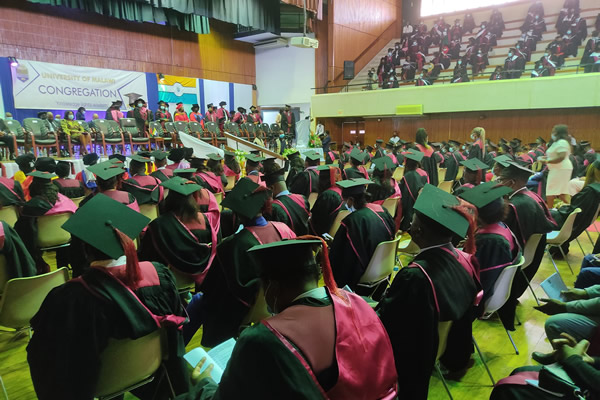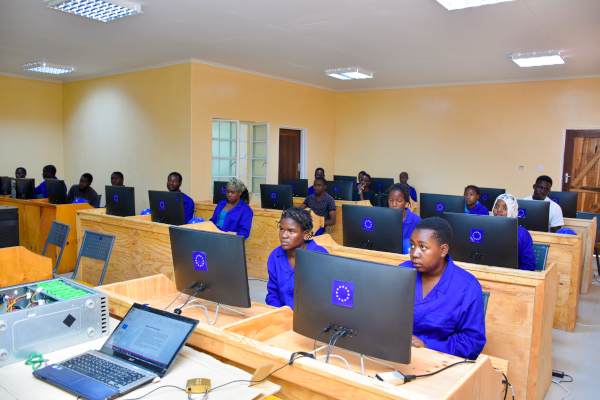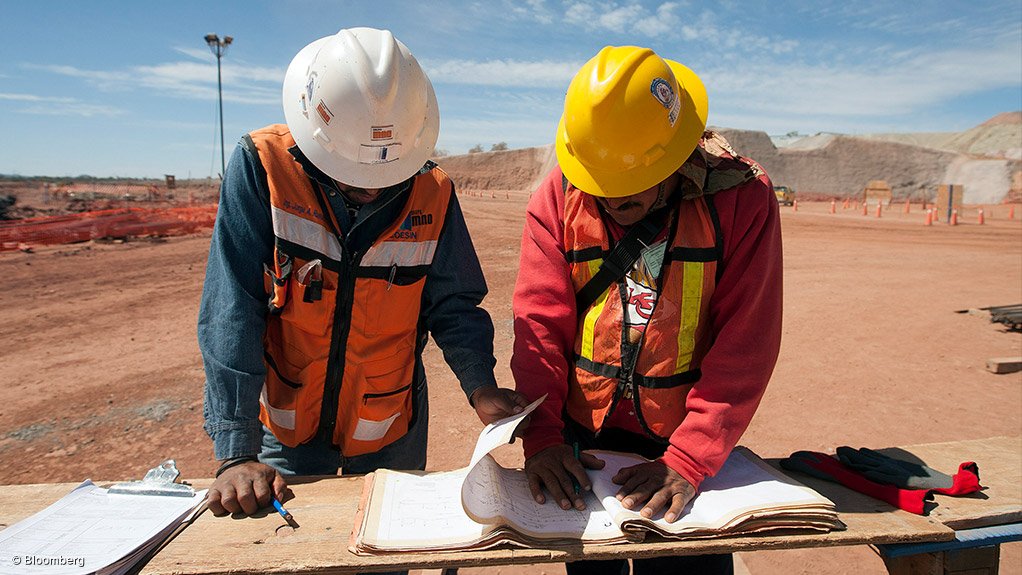This component provides students with skills and training for their careers and prepares them for the job market. It includes hands-on training, mentorship, and career development opportunities. The component also strengthens the capacity of higher education institutions to deliver high-quality skills development programs.
1.1 Performance Agreements for Skills Development Results in Higher Education
This sub-component provides financial support to 9 public HEIs to implement their institutional development plans through performance agreements, including construction, procurement, program improvements, and capacity building. Future financing eligibility is tied to performance, and funding is based on annual work programs and budgets.
1.2 Higher Education Student Financing to Improve Equity
This subcomponent increases financial support to students in need through a Needs-Based Grant scheme for female students and expanding the current loan scheme to increase student loans to poor students. The goal is to provide sustainable financial support to needy and female students. The project aims to support at least 800 females and 5,000 needy students with loans and grants for degree and diploma studies in priority areas.
This project component aims to support the Technical, Entrepreneurial, and Vocational Education and Training (TEVET) sector in Malawi. The goal is to increase access to skills development opportunities for young people and adults, with a focus on vulnerable groups. The component includes activities such as expanding infrastructure, improving quality of training, and providing support for entrepreneurship and job placement.
2.1 Performance Agreements to Support Increased Skills Development through National Technical Colleges
This subcomponent supports seven public NTCs to double their annual intake, improve training quality, and serve as innovation hubs for digital skills development, among other initiatives. It will also incentivise vulnerable youth and girls to participate and offer needs-based informal TEVET programs.
2.2 Increased Access to Market-oriented TEVET Programs through Competitive Grants
This subcomponent will provide support to expand training offers in Community Technical Colleges, private technical colleges, and Community Skills Development Centres. It will focus on meeting market needs, especially for vulnerable and female youth, with 30 institutions expected to benefit through a competitive grant funding mechanism
2.3 Increased Equity in Formal TEVET through Scholarships
The project will help TEVETA set up a scholarship fund to support vulnerable secondary school graduates, particularly females, enrolling in regular TEVETA-sponsored apprenticeship programs. The scholarship will cover living expenses, tuition, book/internet allowance, and examination fees, and will be available to students in all registered formal TEVET institutions. The project aims to support at least 5,000 vulnerable students under this program
This component will focus on improving the policy environment, project management, and information systems in TEVET. It aims to enhance quality assurance mechanisms, expand distance learning opportunities, and develop contingency plans for emergencies like the COVID-19 pandemic. The component will support the ODeL Directorate to ensure continuity of learning during such crises.
3.1 Higher education system strengthening
This sub-component will support MoE and NCHE to improve higher education policies regarding quality assurance, relevance, and equity. It will focus on analyzing data for decision-making, promoting equitable access, improving sector relevance, and enhancing governance and management through capacity building and technical assistance.
3.2 TEVET system strengthening
The project will help TEVETA and the MoL Directorate of Technical and Vocational Training improve access to TEVET, with a focus on girls and market orientation. Reforms will be initiated to collect and analyze data, expand and improve teacher training, strengthen curriculum development, facilitate industrial attachments, establish an e-learning platform, and support continuity of learning during crises
3.3 Strengthening the ODeL Directorate and Support to Continuity of Learning in Tertiary Education
The sub-component will support the development of the new ODeL Directorate\'s capabilities, including the creation of a policy and strategy for ODeL, guidelines for courses, and partnerships to support institutional connectivity. It will also help to introduce an e-learning platform that includes a blended approach of self-paced, instructor-led e-learning and traditional classroom learning.
3.4 Project coordination, monitoring and evaluation, communications
This sub-component will provide support for project management activities including project supervision, M&E, annual verifications, communications, and support to the technical committee. Support will focus on strengthening the institutional capacity of MoE and MoL to carry out the project.
The Contingent Emergency Response Component is included in the project to enable the rapid reallocation of project funds in case of a natural or man-made disaster causing a significant economic or social impact.




